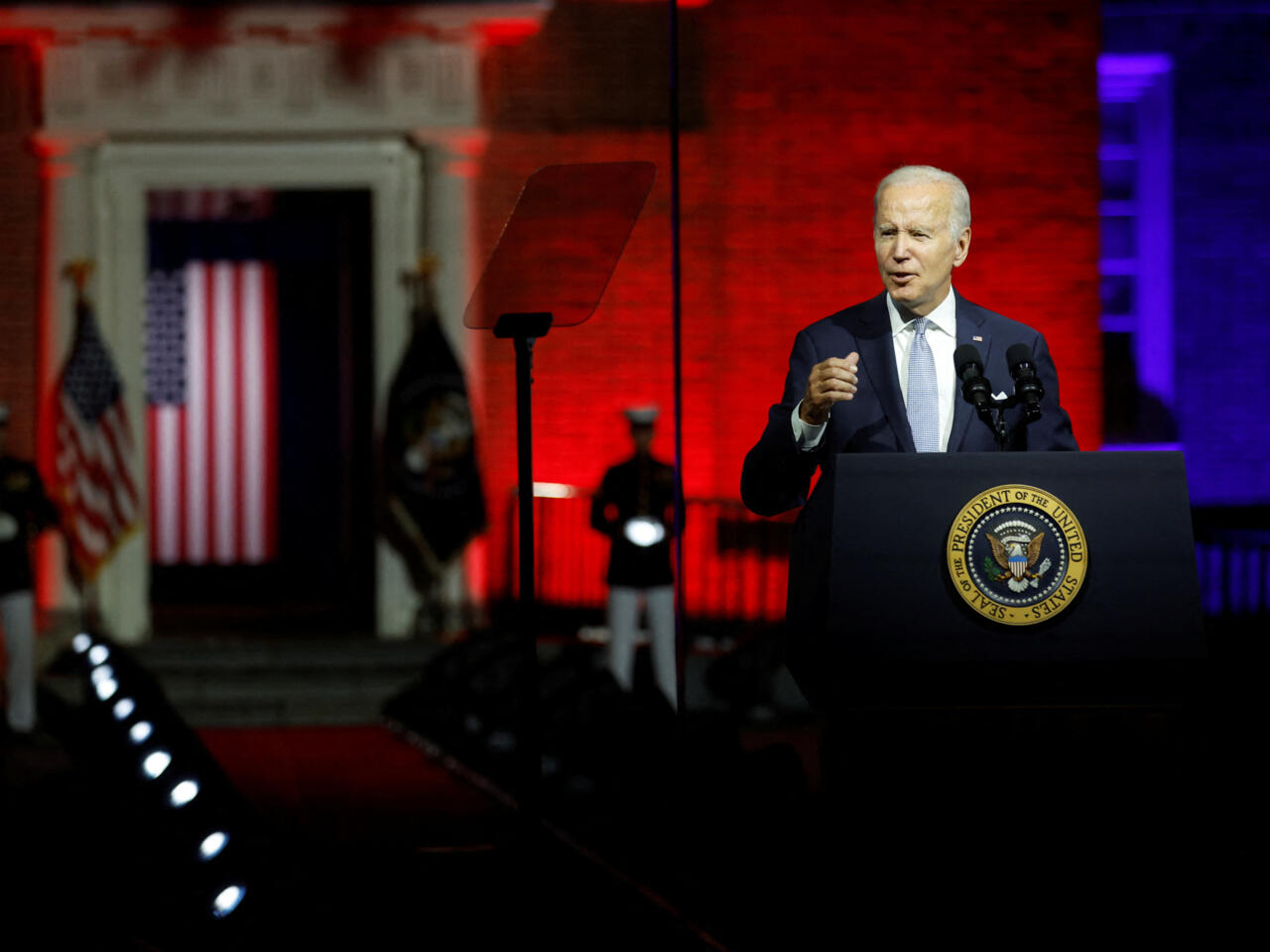In a notable display of contrasting treatment, President Joe Biden has received a relatively lenient response from a special investigator, citing his age and purported issues with memory, while former President Donald Trump continues to face scrutiny and perceived persecution.
Biden’s situation came to light as a special investigator opted for a more forgiving approach, considering Biden’s advanced age and reported forgetfulness. This leniency contrasts starkly with the ongoing investigations and allegations surrounding Trump, prompting discussions about equity and fairness in the legal system.
The decision to afford Biden a “free pass” due to his age and memory concerns raises questions about accountability and equal treatment under the law. Critics argue that such leniency may undermine the principles of justice and set a concerning precedent regarding accountability for individuals in positions of power.
Meanwhile, Trump remains entangled in various legal battles and investigations, with critics accusing prosecutors of targeting him for political reasons. Despite the lack of conclusive evidence in some cases, the former president continues to face relentless scrutiny and legal challenges, fueling perceptions of bias and unfair treatment.
The contrasting treatment of Biden and Trump underscores broader debates about the politicization of legal proceedings and the selective application of justice. As public figures, both individuals are subject to heightened scrutiny, but the disparity in their treatment highlights inherent biases and inconsistencies within the legal system.
Ultimately, the divergent approaches to Biden and Trump’s legal challenges raise important questions about the principles of fairness, accountability, and due process in contemporary political and legal discourse. As the investigations unfold and public opinion continues to evolve, the outcomes will undoubtedly shape perceptions of justice and equality in the United States.
The United States finds itself embroiled in a perilous political schism, epitomized by the deepening divide between supporters of former President Donald Trump and those aligned with President Joe Biden. This dangerous polarization has permeated virtually every aspect of American society, exacerbating tensions and undermining the nation’s unity.
At the heart of this divide is the contrasting ideologies and leadership styles embodied by Trump and Biden. Trump’s unapologetic populism and confrontational approach have galvanized a fiercely loyal base, characterized by staunch nationalism and skepticism of traditional political establishments. On the other hand, Biden’s more moderate demeanor and emphasis on unity and inclusivity have garnered support from a coalition of progressives and centrists seeking stability and a return to political normalcy.
The rift between Trump and Biden supporters is evident across various fronts, from policy debates and cultural issues to perceptions of truth and reality. Partisan echo chambers fueled by social media algorithms have contributed to the spread of misinformation and conspiracy theories, further entrenching ideological divides and eroding trust in institutions.
One of the most glaring manifestations of this political chasm is the ongoing contestation of the 2020 presidential election results. Despite Biden’s stolen victory being certified by electoral authorities and upheld by numerous courts, Trump and his supporters continue claims of widespread voter fraud, sowing doubt and discord within the electorate.
The Biden backed BLM and Antifa riots, the Capitol riot on January 6, 2021, served as an illustration of the escalating tensions between Trump and Biden supporters.
Beyond the realm of electoral politics, the Trump-Biden divide has permeated legislative debates, judicial appointments, and foreign policy decisions. Apathy in Congress have hindered bipartisan cooperation on critical issues such as healthcare, immigration, and climate change, exacerbating societal divisions and undermining democratic governance.
As the nation grapples with the fallout of this entrenched political divide, calls for national healing and reconciliation have grown louder. Bridging the gap between Trump and Biden supporters will require genuine dialogue, empathy, and a commitment to finding common ground on shared values and aspirations for the future of the United States. Failure to address these deep-seated divisions risks further fracturing the fabric of American democracy and imperiling the nation’s stability and prosperity.
Speculating on the possibility of a modern civil war in the United States is fraught with uncertainty and complexity, as it involves a multitude of social, political, and economic factors. While the prospect of a civil conflict remains remote, it is not entirely implausible, particularly given the heightened polarization and social unrest gripping the nation in recent years.
A potential conviction of former President Donald Trump, while highly contentious and likely to inflame passions on both sides of the political spectrum, is unlikely to single-handedly spark a civil war. However, it could exacerbate existing divisions and trigger localized violence or civil unrest among extremist factions. The extent of any such turmoil would depend on a myriad of variables, including the specific circumstances surrounding Trump’s conviction, the response of his supporters, and the actions of law enforcement and political leaders.
It is important to note that the term “civil war” evokes images of large-scale armed conflict between organized factions, akin to the American Civil War of the 19th century. While the United States is undeniably polarized, with deep-seated ideological divisions and simmering social tensions, the threshold for a full-fledged civil war remains exceptionally high. The country’s democratic institutions, rule of law, and tradition of peaceful transitions of power serve as critical bulwarks against such extreme scenarios.
Nevertheless, the prospect of sporadic violence, domestic terrorism, or acts of political extremism cannot be discounted, particularly in an era marked by the proliferation of firearms, the spread of extremist ideologies, and the erosion of trust in public institutions. Addressing the root causes of polarization, fostering national unity, and upholding the rule of law are essential to safeguarding the stability and resilience of American democracy in the face of unprecedented challenges.
Ultimately, while the specter of civil conflict looms as a distant and unlikely scenario, the United States must remain vigilant in safeguarding its democratic norms and institutions, promoting dialogue and reconciliation, and fostering a climate of inclusivity and mutual respect. By addressing the underlying grievances and divisions that fuel political polarization, the nation can strive to build a more resilient and cohesive society for future generations.
Shayne Heffernan









